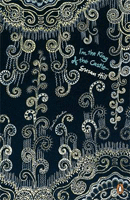Lady Chatterley’s Lover
Author: D. H. Lawrence
Publisher:
Penguin Classics
Published: 1st June 2006 (Originally published in 1928).
RRP: £8.99
The first thing to say
about this book is that it really is quite surprising it was written so long
ago. Not only is the language blunt and
shocking by even today’s standards, but the subject matter- an exploration of
the role of sex within relationships, feels contemporary and ever-relevant.
The lead character Connie marries Clifford
Chatterley who, shortly after their honeymoon, is sent to war only to return
paralysed from the waist down and completely impotent. He becomes consumed in his success as a
writer and with his coal mining business pushing Connie away and increasing her
feeling of isolation. She eventually
sparks up a relationship with the groundskeeper Oliver Mellors and the
remainder of the tale follows their exploits and the consequences of their
affair.
I’m a lover of classic literature, but it can
get tedious reading stories that are much the same with women generally being
wet and pathetic creatures who are easily manipulated and controlled by their
male equivalents. It is refreshing
therefore that Connie is presented as such an independent woman. Of course we could argue for hours that she
is anything but strong and confident but ultimately she is a woman tired of her
life, wants more and goes and gets it despite the hurdles in her way. Hooray for her!
I think the book is a very
honest analysis of relationships. We
would all love to think we could do the noble thing of sticking by someone who
has become disabled despite there being a lack of physical and emotional
connection , realistically though, this doesn’t happen. The book doesn’t shy from the fact that sex
is an integral part of human relationships and explores the voids that can
develop when people are just not suited to each other.
I did enjoy the book it
was shocking at times, warm and sincere although hearing how much Connie’s womb
tingled, flickered or other ridiculous sensation did get a little
tiresome!
Rating: 8/10








